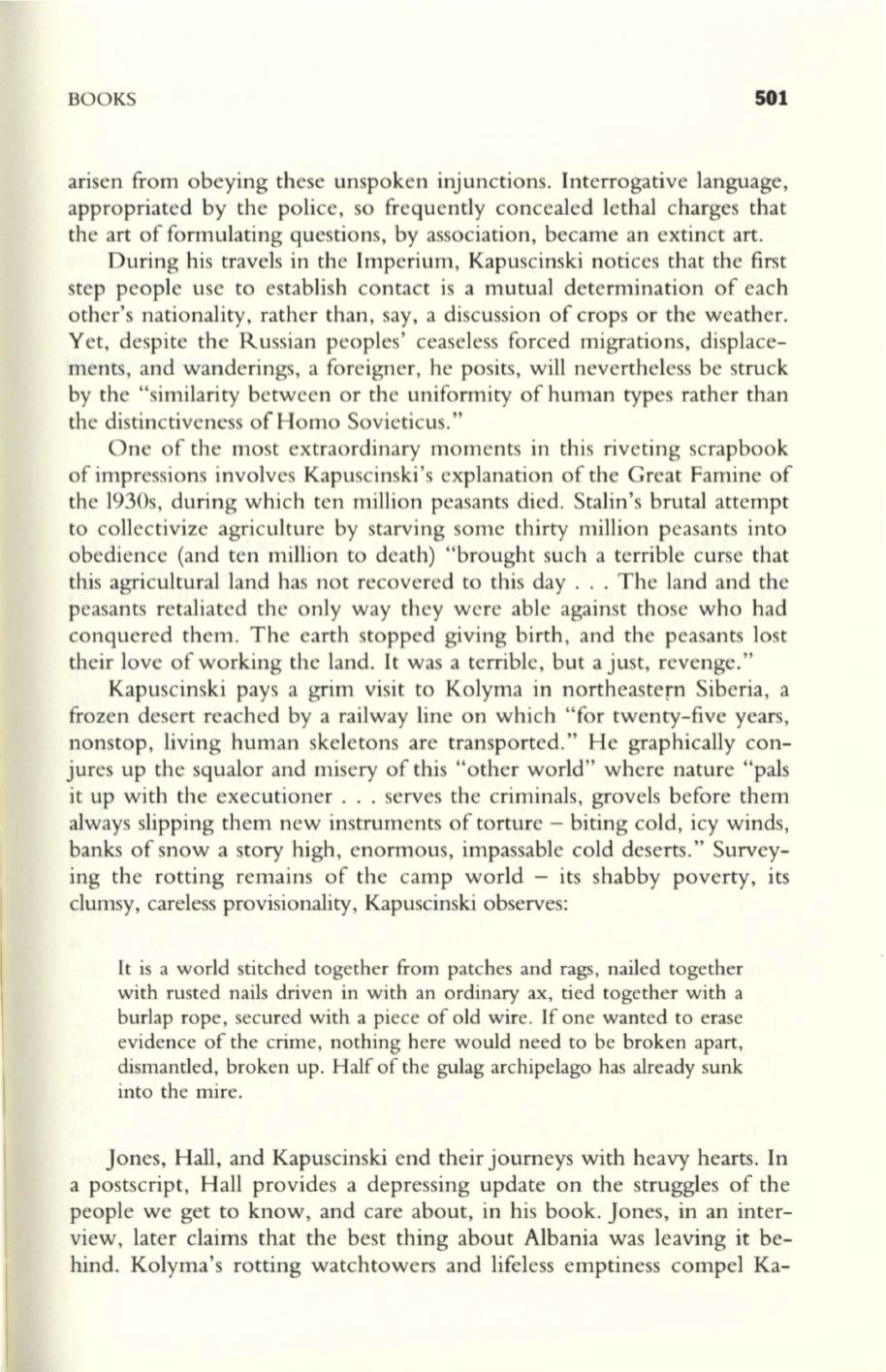
BOOKS
501
arisen from obeying these unspoken injunctions. Interrogative language,
appropriated by the police, so frequently concealed lethal charges that
the art of formulating questions, by association, became an extinct art.
During his travels in the Imperium, Kapuscinski notices that the first
step people use to establish contact is a mutual determination of each
other's nationality, rather than, say, a discussion of crops or the weather.
Yet, despite the Russian peoples' ceaseless forced migrations, displace–
ments, and wanderings, a foreigner, he posits, will nevertheless be struck
by the "similarity between or the uniformity of human types rather than
the distinctiveness of Homo Sovieticus."
One of the most extraordinary moments in this riveting scrapbook
of impressions involves Kapuscinski's explanation of the Great Famine of
the 1930s, during which ten million peasants died. Stalin's brutal attempt
to collectivize agriculture by starving some thirty million peasants into
obedience (and ten million to death) "brought such a terrible curse that
this agricultural land has not recovered to this day ... The land and the
peasants retaliated the only way they were able against those who had
conquered them. The earth stopped giving birth, and the peasants lost
their love of working the land. It was a terrible, but a just, revenge."
Kapuscinski pays a grim visit to Kolyma in northeastern Siberia, a
frozen desert reached by a railway line on which "for twenty-five years,
nonstop, living human skeletons are transported." He graphically con–
jures up the squalor and misery of this "other world" where nature "pals
it up with the executioner ... serves the criminals, grovels before them
always slipping them new instruments of torture - biting cold, icy winds,
banks of snow a story high, enormous, impassable cold deserts." Survey–
ing the rotting remains of the camp world - its shabby poverty, its
clumsy, careless provisionality, Kapuscinski observes:
It is a world stitched together from patches and rags, nailed together
with rusted nails driven in with an ordinary ax, tied together with a
burlap rope, secured with a piece of old wire. If one wanted to erase
evidence of the crime, nothing here would need to be broken apart,
dismantled, broken up. Half of the gulag archipelago has already sunk
into the mire .
Jones, Hall, and Kapuscinski end their journeys with heavy hearts. In
a postscript, Hall provides a depressing update on the struggles of the
people we get to know, and care about, in his book. Jones, in an inter–
view, later claims that the best thing about Albania was leaving it be–
hind. Kolyma's rotting watchtowers and lifeless emptiness compel Ka-


